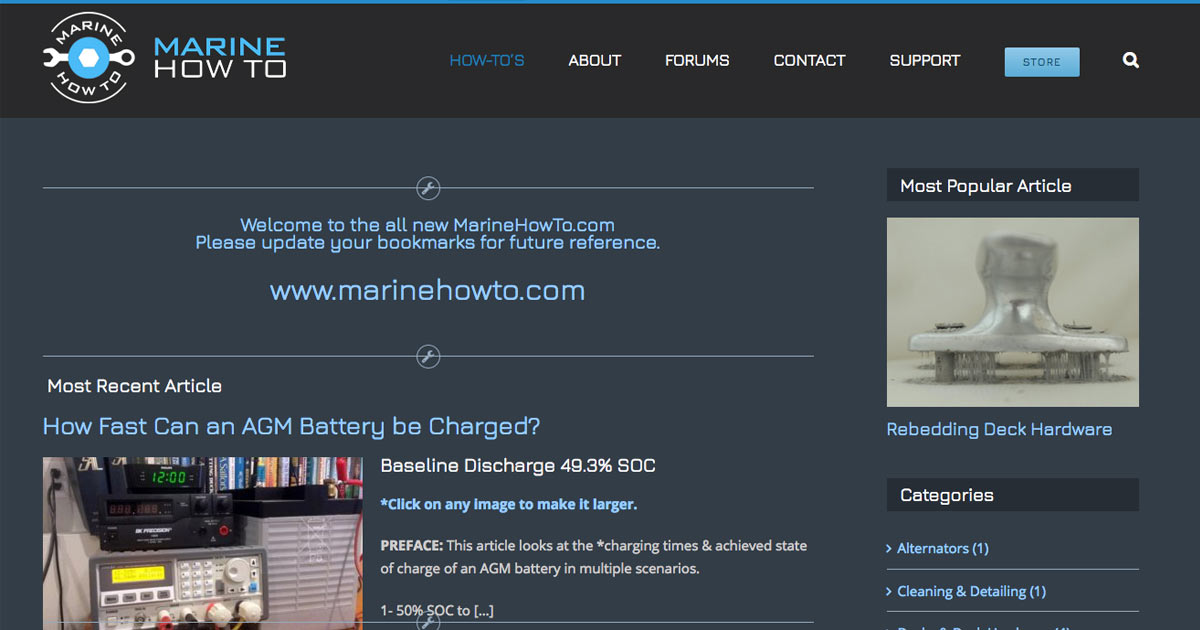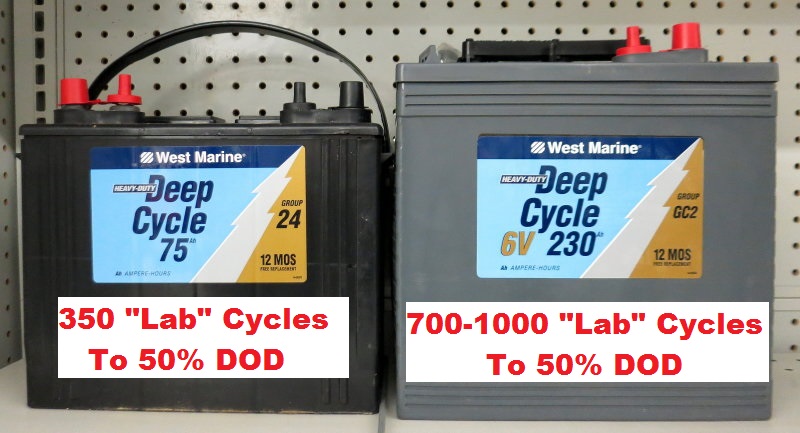Bought two new AGM batteries before the sailing season last year. Sailed the entire year without issue. Last weekend I noted one of the two batteries (Battery 1) was dead, but was able to start the engine on the opposite battery. Bought a new solar charger and applied it to Battery 1 noting the starting voltage was 10.3 VDC (probably should have clued in that this was pretty low).
Arrived at the boat yesterday and noted 11.7VDC for Battery 1 on the solar charger. Used that battery for phone charging, water pump usage, radio and lights while we stayed at the mooring overnight. This morning I switched to the battery 2 to start the engine - nothing. Switched to battery 1, but it wasn’t enough to start the engine. Put the solar panel on batter 2 and it read 6.7 VDC. I assume it is a goner.
I borrowed a battery jumper from yard and was able to get the engine running when connected to battery 1 and motor sailed for about two hours, but noted no amps were going to the battery.
So…..I think it is fair to say I have two useless AGM batteries at this point (need to see if there was a warranty). What would have caused them to die so quickly? I have a very simple electrical system - is there any way to see what could be draining them when my three-way switch (1-2-Both) is ”off”. Previous owner was able to go two days on charge. Alternator failure? How do I check to see if the alternator is working? I must be doing something wrong….
Arrived at the boat yesterday and noted 11.7VDC for Battery 1 on the solar charger. Used that battery for phone charging, water pump usage, radio and lights while we stayed at the mooring overnight. This morning I switched to the battery 2 to start the engine - nothing. Switched to battery 1, but it wasn’t enough to start the engine. Put the solar panel on batter 2 and it read 6.7 VDC. I assume it is a goner.
I borrowed a battery jumper from yard and was able to get the engine running when connected to battery 1 and motor sailed for about two hours, but noted no amps were going to the battery.
So…..I think it is fair to say I have two useless AGM batteries at this point (need to see if there was a warranty). What would have caused them to die so quickly? I have a very simple electrical system - is there any way to see what could be draining them when my three-way switch (1-2-Both) is ”off”. Previous owner was able to go two days on charge. Alternator failure? How do I check to see if the alternator is working? I must be doing something wrong….





